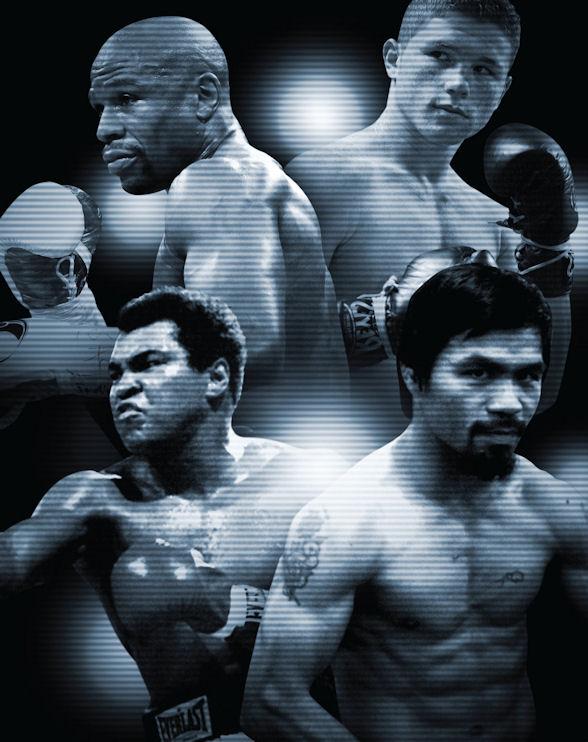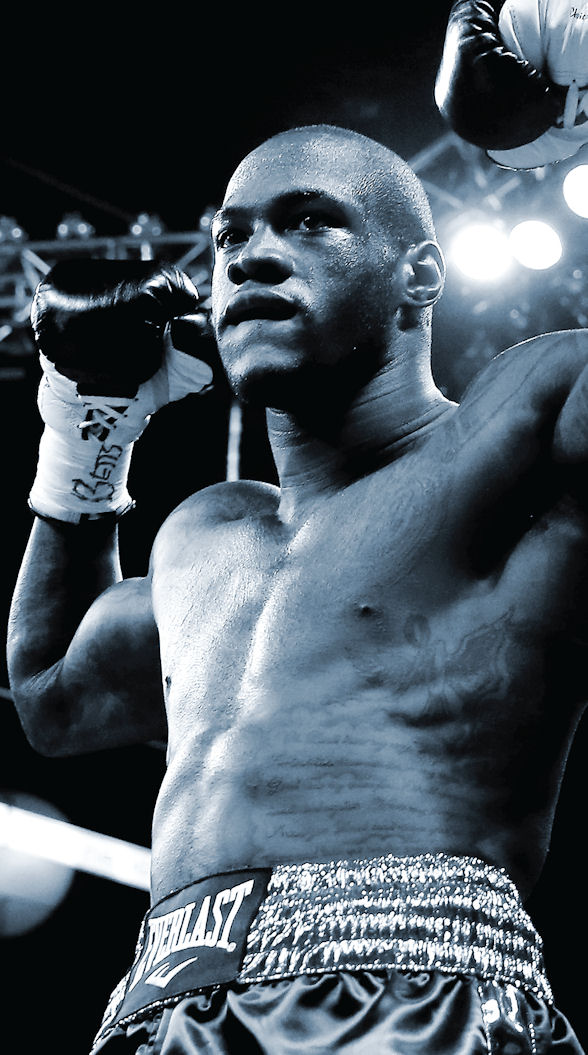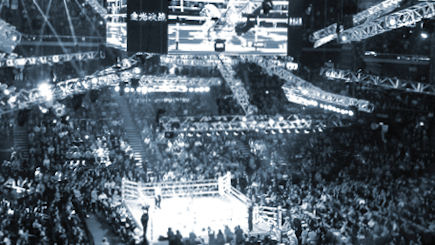This article first appeared in the Sep/Oct 2014 issue of World Gaming magazine.

Boxing might not be knocked out yet, but some say it is on the canvas and the referee has commenced the count. Corruption, poor management, sub-standard fights and the success of Mixed Martial Arts (MMA) has delivered a series of vicious blows to boxing that it may not be able to recover from. Or can it? We examine the positives and negatives facing this ancient sport as it tries to stay afloat and flourish in the modern era.
IS BOXING DEAD? THE CASE FOR …
Health Concerns
Being punched in the head and body numerous times can be detrimental to one’s health. People can, and do, die as a result of injuries they receive in the boxing ring. You might think the gloves boxers wear are there to protect their opponent. This isn’t the case – the gloves are actually worn to protect the hands of the person throwing the punch and that extra weight does extra damage. Even the greatest boxer of all time, Muhammad Ali, was punched so many times he has been crippled by serious head injuries. There have long been calls for women’s boxing to be banned. Some countries, such as Sweden, already have a ban in place on professional fights and it was even suggested late last year that boxing should be banned in all Filipino schools following the death of 16-year-old Jonas Joshua Garcia after he competed in a school-based competition. This last instance is particularly concerning for the sport at its grass roots level as health officials across the globe increase their push to protect citizens from unnecessary injury.
Corruption
Boxing has always enjoyed a relationship with the underworld. Gambling, fight fixing and the often questionable promotion of fights have been under the spotlight of authorities ever since the sport became organized. Some of boxing’s underworld image has become folklore and is part of the mystique of the sport, but fans won’t put up with this sort of behavior forever – particularly in the modern age. Sadly, boxing has a history of blatantly corrupt behavior and when it is in plain sight – such as at the judges’ table – it’s pretty difficult to ignore. After all, who could forget Roy Jones Jr’s absurd loss to Park Si-Hun at the 1988 Olympics after landing 86 punches to Park’s 32, or Manny Pacquiao’s highly controversial loss to an out-classed Timothy Bradley in 2012?
Pay TV and Money
Pay TV and money now appear to be in complete control of boxing as a sport. The public aren’t getting the fights they want while fighters and management bicker about the purse. You only have to look at the fact that Manny Pacquiao and Floyd Mayweather still haven’t fought to see that boxing is never about what the fans want. This is because the money fighters earn rarely has anything to do with the result but the split of the purse prior to a punch being thrown.
The Circus is in town
The lead-up to major boxing bouts has become more staged than professional wrestling. Fighters understand this and the ones getting the lucrative fights are the ones playing the game. Some fighters even go out of their way to ensure the public dislikes them in order to increase their potential for big fights because fans are always more likely to pay to watch someone they despise get knocked out. WGM has always enjoyed a bit of banter in the lead-up to a fight and no doubt a bit of showmanship is a wonderful part of the sport but it has now gone too far and fight fans are starting to see right through it.

Clockwise from top left: Floyd Mayweather, Saul Alvarez, Manny Pacquiao and Muhammad Ali
Bad fights and bad cards
This is arguably the single biggest problem facing boxing. Fans are sick of watching Main Events featuring fighters who have no right to be there. In some countries – Australia and England spring to mind – promoters have even started encouraging football players to step into the ring during the off-season in order to boost interest. That’s fine, but give us a truly skilled boxer over a celebrity throwing punches any day of the week. What fans really want is the best fighters against the best opposition and some interesting undercard bouts thrown in for good measure. It’s not good enough to cheat those paying big money to watch on pay-per-view with sub-par fights. The fact that there are no great rivalries in the heavyweight division at the moment isn’t helping either.
MMA and the UFC
Boxing is still trying to peddle the VCR while the UFC is selling DVDs. The UFC is safer, cleaner, well run and offers much better fights – and more of them. You could argue that boxing and MMA can exist in the same market but in reality they are competing for the same dollar. The UFC is serving for the match at the moment and there is no sign that boxing has any chance of breaking back.
IS BOXING DEAD? THE CASE AGAINST …
Zou Shiming
Fear not boxing fans, all is not dead – and it could be China leading its resurgence. That’s right, he might stand a paltry 165cm tall and weigh just 51kg but China’s two-time Olympic gold medalist has been singled out as the man to carry this famous old sport into a bright new future. Why? Because in Zou, boxing finally has a way to crack the lucrative Chinese market. To understand Zou’s importance, it’s worth noting that China had never even produced an Olympic boxer until 1992 – a problem that stems back to the ban placed on all competitive sports by Mao Zedong in the 1960s. Zou won his country’s first ever Olympic boxing gold medal in 2008 – on home soil no less. He then repeated his feat in London four years later. It didn’t take long for promoter Bob Arum to recognize the potential. Since turning professional in early 2013, Zou has fought five times for five wins with an estimated 300 million Chinese tuning in for each. To put it into perspective, that’s equivalent to almost the entire population of the United States – a country which has typically been known as the home of boxing. While Manny Pacquiao has long been a sporting icon in the Philippines, China has remained the sport’s one untapped market and if Zou can capture the nation’s imagination in the same way basketballer Yao Ming did the sport of boxing will well and truly be back on its feet and swinging.
The Venetian Macao
As we noted earlier, the United States – and Las Vegas in particular – has traditionally been the home of boxing. Properties such as Caesars Palace, Mandalay Bay and MGM are synonymous with pugilism and inevitably the majority of the world’s biggest fights have been held at one of these famous venues. But now the Venetian Macao is getting in on the act and attracting a whole new audience.
We should note that Sands China Ltd (SCL), the company which operates Venetian Macao, has adopted a distinctly Western-style approach in looking for non-gaming revenue streams with attractions such as Disney’s Pixar characters, world famous musical acts such as The Rolling Stones and Rihanna and now their regular fight nights inside Cotai Arena. SCL currently earns around 10 percent of its revenue from non-gaming attractions – the most of any of Macau’s six concessionaires.
There is no doubt the Venetian Macao has thrown a welcome lifeline to the sport of boxing and the timing is perfect too given Zou Shiming’s decision to turn professional following the 2012 Olympics. SCL isn’t allowed to advertise gambling on Mainland China but by hosting his fights they have recognized a unique opportunity to get the Venetian Macao brand name out to hundreds of millions of Chinese.
Likewise, the great Manny Pacquiao fought in Macau for the first time last November when he defeated Brendon Rios at the Venetian and will head back there again in a few months’ time to defend his welterweight belt on 23 November.
The Venetian Macao hasn’t stopped at boxing and over the past two years we’ve also seen a couple of MMA fight nights as well as a Thai kick-boxing event and various other popular styles, however it’s impossible to ignore the role this venue is going to play in the future if boxing is to regain its broad appeal.

Rising Stars
Boxing remains a long way from its glory days when legends such as Muhammad Ali, Joe Frazier and George Foreman dominated the ring, but there are a handful of highly promising youngsters starting to make a name for themselves. Although the sport is crying out for a genuine challenger to the undisputed best boxer in the world in Mayweather, 24-year-old Saul Alvarez is one man making a name for himself. Unfortunately he took on Mayweather too soon when he lost a unanimous points decision last September, but the fight proved hugely successful on pay-per-view, taking in around US$42 million to prove there are still fight fans out there desperate for another great boxing rivalry. Even more exciting, however, is American heavyweight Deontay Wilder. An Olympic bronze medalist in 2008, his professional record currently stands at 31 wins from 31 fights with 31 knockouts and many consider him to be the only man with the sheer size and power to challenge Russia’s WBA/WBO/IBF/IBO champ Wladamir Klitschko. Wilder will fight current WBC champion Bermane Stiverne for the belt in the coming months and if he can get past that hurdle there will undoubtedly be calls for Klitschko to try and unify the belts. Now that is a fight the whole world would pay to see!
Mayweather V Pacquiao
We shouldn’t get our hopes up – after all, these two haven’ t been able to agree to terms in the past despite the huge pay packets on offer – but just when we thought it would never happen, Pacquiao proved his critics wrong with a brilliant display against his former conquerer Timothy Bradley earlier this year. That win has reignited talk of a Mayweather v Pacquiao super fight and although some believe Mayweather doesn’t want to risk his unbeaten record, opportunities to take part in something this big don’t come around every day. Imagine what a boost the sport of boxing would receive if these two were to finally take to the ring!
Officials with foresight
We can only hope that boxing can find a way to get rid of the vested interests and truly unify the sport. First step is to do away with the ridiculous free-for-all that not only sees multiple organizations offering belts to their “world champion” but in some cases multiple world champions within the same weight division in a single organization! Take the WBA, for example, which has a history of doing as they please and currently offers 35 belts despite there being only 17 weight divisions. Fortunately there are some out there who have had enough and are trying to rectify the problem. A few years back, a group of dedicated boxing writers started the Transnational Boxing Rankings Board with the aim to provide true global top 10 rankings with a single world champion in each weight division. Although it hasn’t yet succeeded in reeling in the cowboys, it has attracted plenty of interest from like-minded folk within the industry who want to see boxing again be about the best of the best. Their efforts give us reason to hope. It’s also time the powers that be started televising some quality fights free of charge. It’s a shame that “free” is a dirty word to so many in the boxing community, but the sport has lost fans over the past few years and the only way to win them back is to give them something to watch.
For the time being, the answer to the question of whether boxing is dead is no, it’s not. That’s not to say the sport isn’t in trouble. In boxing parlance, the referee is currently delivering a standing eight count and there in the background are its numerous problems just waiting to land one final knockout blow. The question now is whether boxing can save itself. The opportunity is there but it’s up to a select few to come back out swinging.







